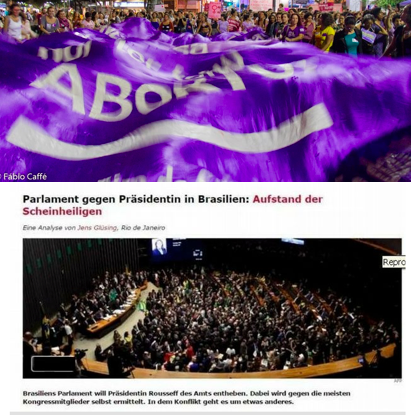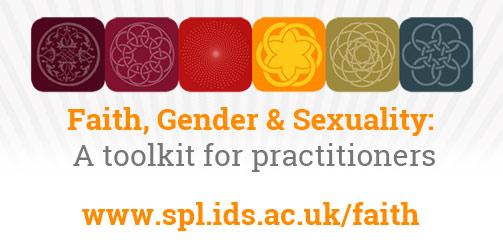ISIS and Women: A STATUS/Conversation with Rafia Zakaria
In this interview with STATUS/الوضع host Katty Alhayek, journalist and author Rafia Zakaria discusses her articles on ISIS and women, and the challenges that she faces when sharing her perspective on these issues with a wider audience.

Where are we heading? A Bangladeshi feminist’s reflections: Khushi Kabir
Very soon after Professor Rezaul Karim Siddque of Rajshahi Univeristy was hacked to death in the morning of April 23, 2016, I wrote my feelings, my frustrations, my concerns and my fears. From all the information we received, Professor Karim appeared to be a quiet man, a man who was of a peaceful nature, a lover of music and a committed teacher.
Sexual Politics in April 2016
A new wave of deadly attacks against human rights and secular activists is at play in Bangladesh. In final April, two LGBT activists were hacked
As the Brazilian crisis unfolds, the abortion frontlines keep burning
Since our reports of early 2015, SPW has always linked developments in the abortion debate to the on-going Brazilian political and economic crisis. On April 17th, 2016, this crisis reached an initial point of culmination when the House of Representatives voted for and approved the admissibility of the impeachment of President Dilma Rousseff.

An unamed letter from Bangladesh regarding the murders of LGBT activists
SPW shares an unnamed letter written by Bangladesh activist after the murders of LGBT activists in the Asian country in the past weeks. The letter
New interactive resource to bridge gap between faith, gender and sexuality
Across the globe, religion plays a critical role in shaping attitudes about gender norms and sexuality, which in turn have a profound effect on people’s everyday lives. A new Faith, Gender & Sexuality Toolkit launched today seeks to build knowledge and provide crucial support for faith communities and leaders working to promote social justice in relation to gender and sexuality.

The New Morality of Pope Francis
Read New Yorker‘s article, authored by James Carroll, on Pope Francis’s latest apostolic exhortation, “Amoris Laetitia” (“The Joy of Love”).

The sexual politics in March and early April 2016
We have the great pleasure to inform that our Spanish page has been re-launched. In this opportunity Alejandra Sardá from Akahatá has written an update
Our lady of controversies
Alma López is a queer Chicana artist who lives in California. Her work has many varied expressions. But most principally it elaborates and re-signify the
Brazilian abortion politics: An update
During 2015, as previously reported by SPW, Brazilian abortion politics continued to evolve under pressures created by the unsettled intersection of regressive policy trends (which have been gaining strength since the mid 2000’s) and the macro-political crisis which has overtaken the Brazilian res publica.






